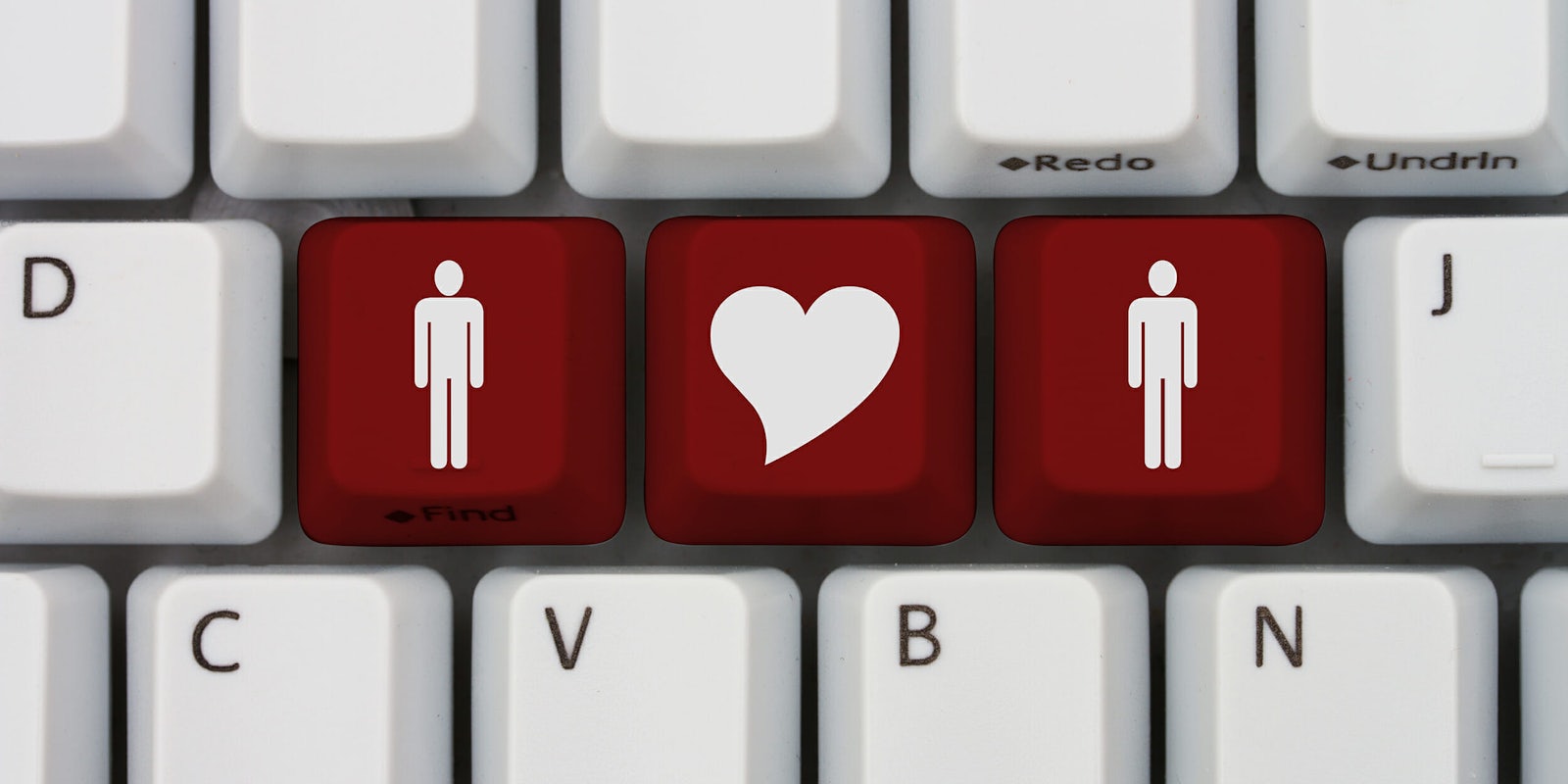According to an ongoing study of how relationships are formed, the most common way for new couples to meet now is online, and the chances are even higher if you’re LGBTQ.
The study, carried out by Michael Rosenfeld and Sonia Hausen of Stanford University and Reuben J. Thomas of the University of New Mexico, is titled “Disintermediating your friends.” The researchers have been collecting and interpreting data on how newly formed couples meet and comparing changes since online dating began having a measurable impact on the dating scene in the early 2000s. The findings show a steady increase in online dating over the last two decades among heterosexual people. However, LGBTQ were early adopters and continue to be pro-online dating.
The most recent figures show 65 percent of same-sex couples meet online, compared to 39 percent of straight couples. According to the study, “The 65 percent of recently formed same‐sex couples who met online is very similar to what Rosenfeld and Thomas …reported for same‐sex couples in 2009 using the 2009 data alone.”
It makes sense that LGBTQ people were first to this technology. While heterosexual people can easily rely on friends and family to recommend potential partners who fit their sexuality, which is how many people found potential dates and partners in the past, many queer people aren’t so lucky. In addition, if there’s a fear of backlash from family, online dating is a way to find partners without family members knowing.
There are also concerns about safety and compatibility. In the past, people would warn against meeting someone from the internet, because you never know if they are who they say they are. While that is still true, online dating can also help to vet out people who you definitely don’t want to date. While chatting on Tinder or Bumble or Twitter, you can learn if someone is transphobic, or has gross hang-ups about bisexual people, or if they stubbornly refuse to use they/them pronouns.
The reasons people are turning to online dating over help from friends are plentiful, and as more and more people use those services, the value of them only increases.
H/T Pink News


